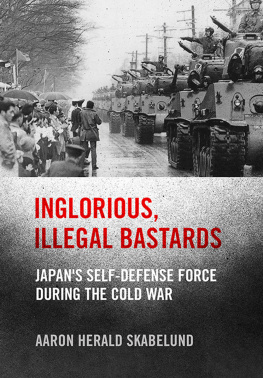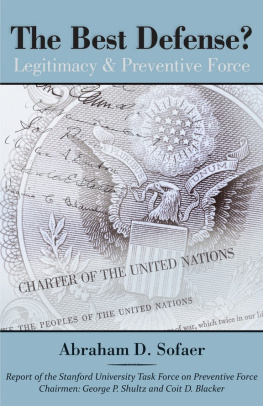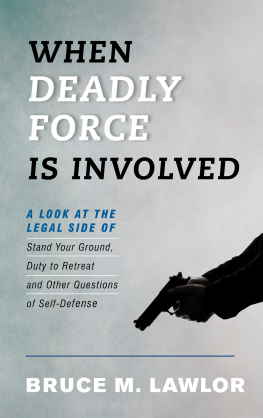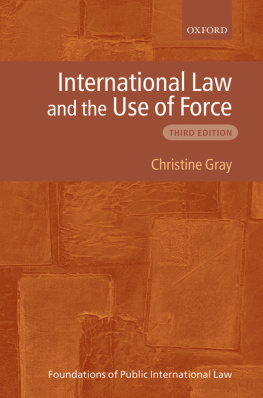Aaron Skabelund - Inglorious, Illegal Bastards: Japans Self-Defense Force during the Cold War
Here you can read online Aaron Skabelund - Inglorious, Illegal Bastards: Japans Self-Defense Force during the Cold War full text of the book (entire story) in english for free. Download pdf and epub, get meaning, cover and reviews about this ebook. City: Ithaca, year: 2022, publisher: Cornell University Press, genre: History. Description of the work, (preface) as well as reviews are available. Best literature library LitArk.com created for fans of good reading and offers a wide selection of genres:
Romance novel
Science fiction
Adventure
Detective
Science
History
Home and family
Prose
Art
Politics
Computer
Non-fiction
Religion
Business
Children
Humor
Choose a favorite category and find really read worthwhile books. Enjoy immersion in the world of imagination, feel the emotions of the characters or learn something new for yourself, make an fascinating discovery.
- Book:Inglorious, Illegal Bastards: Japans Self-Defense Force during the Cold War
- Author:
- Publisher:Cornell University Press
- Genre:
- Year:2022
- City:Ithaca
- Rating:3 / 5
- Favourites:Add to favourites
- Your mark:
Inglorious, Illegal Bastards: Japans Self-Defense Force during the Cold War: summary, description and annotation
We offer to read an annotation, description, summary or preface (depends on what the author of the book "Inglorious, Illegal Bastards: Japans Self-Defense Force during the Cold War" wrote himself). If you haven't found the necessary information about the book — write in the comments, we will try to find it.
In Inglorious, Illegal Bastards, Aaron Herald Skabelund examines how the Self-Defense Force (SDF)the postWorld War II Japanese militaryand specifically the Ground Self-Defense Force (GSDF), struggled for legitimacy in a society at best indifferent to them and often hostile to their very existence.
From the early iterations of the GSDF as the Police Reserve Force and the National Safety Force, through its establishment as the largest and most visible branch of the armed forces, the GSDF deployed an array of public outreach and public service initiatives, including off-base and on-base events, civil engineering projects, and natural disaster relief operations. Internally, the GSDF focused on indoctrination of its personnel to fashion a reconfigured patriotism and esprit de corps. These efforts to gain legitimacy achieved some success and influenced the public over time, but they did not just change society. They also transformed the force itself, as it assumed new priorities and traditions and contributed to the making of a Cold War defense identity, which came to be shared by wider society in Japan. As Inglorious, Illegal Bastards demonstrates, this identity endures today, several decades after the end of the Cold War.
Aaron Skabelund: author's other books
Who wrote Inglorious, Illegal Bastards: Japans Self-Defense Force during the Cold War? Find out the surname, the name of the author of the book and a list of all author's works by series.










